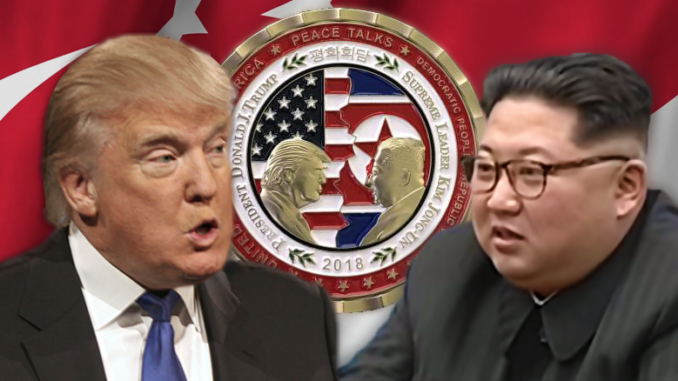
Three companies and one Russian businessman were the targets of a new round of US sanctions, the Treasury Department’s Office of Foreign Assets Control (OFAC) announced on Wednesday.
The sanctions are aimed at China’s Dalian Sun Moon Star International Logistics Trading Co. and its Singapore-based affiliate, SINSMS Pte. Ltd. The companies were accused of facilitating illicit shipments using falsified documents to illegally export alcohol and cigarettes to Pyongyang, a practice that has reportedly earned them $1 billion a year, according to the statement released by US Treasury Secretary Steven Mnuchin (linked above).
Also affected by Wednesday’s sanctions was Profinet Pte Ltd., along with its Director General, Russian national Vasili Aleksandrovich Kolchanov. Profinet, which offers shipping services such as loading, bunkering, supplying, and departure arrangements, was targeted for providing these services “on at least six separate occasions” to vessels flagged as belonging to the DPRK. The vessels were involved in shipments of refined oil products and some of them, namely the CHON MYONG 1 and RYE SONG GANG 1, were already subject to US sanctions.
The sanctions “freeze any assets that these entities may have in the U.S.” and forbids Americans to do business with them.
Despite agreeing to vague terms of “denuclearization” at a summit with President Trump in June, North Korea has demonstrated reluctance to follow through with that agreement. Satellite images in late July indicated that the process might finally be underway, although nuclear expert and MIT Associate Professor Vipin Narang cautioned that the steps so far have all been reversible, calling the move a “far cry from any real step towards disarmament.”
Dr. Narang says the North Koreans might not even need the Sohae facility to produce the ICBMs and the engines required for long-range missiles, because they may have already perfected them.
“If they’ve already conducted all the tests they need to, then it really doesn’t cost them very much,” he said.
“They like pop-up sites and mobile test sites, so it may be that they’ve just taken steps they would have taken anyway,” he said.
Australian Broadcasting Corporation
No work has been shown to have begun on North Korea’s other missile testing sites, while a report submitted to the UN Security Council on August 3 concluded that North Korea was continuing to develop new ballistic missiles. It also maintained that the DPRK had resorted to a “massive increase” in illegal ship-to-ship oil transfers and has been trying to sell weapons abroad. All of these, of course, would be in direct violation of American and UN sanctions.
The latest instance involving Profinet is not the first case of Russia lending assistance to North Korea in defiance of sanctions, either. The Washington Post, for example, reported in December 2017 that the technology used in recent missiles fired by North Korea was procured by the help of Russia:
In late 1992, with the U.S.-Russian project flagging, more than 60 Russian missile scientists and family members from the Makeyev facility were arrested at Moscow’s Sheremetyevo International Airport as they prepared to travel to Pyongyang to work as consultants. U.S., Russian and South Korean intelligence officials later concluded that some of the scientists eventually succeeded in traveling to North Korea to offer blueprints and technical advice for the country’s missiles program.
But U.S. analysts see more persuasive evidence in the actual missiles that North Korea has put on display over the past two years. In the most striking case, the Hwasong-10, or Musudan, a single-stage missile successfully tested by North Korea in June 2016, appears to use the same engine and many design features as the Soviet Union’s R-27 Zyb, a submarine-launched ballistic missile designed by Makeyev scientists and advertised in one of the brochures obtained by The Post.
The Washington Post
Just this month, the US Treasury Department issued sanctions on Agrosoyuz Commercial Bank, a Russian bank that had knowingly facilitated “a significant transaction on behalf of an individual designated for weapons of mass destruction-related activities in connection with North Korea,” the department said in a statement at the time.
Also this month, The Wall Street Journal reported that Russia has been allowing thousands of North Korean workers access to the country and issuing new work permits in a potential violation of sanctions.
Why It Matters
If there is to be a resolution to the human rights abuses and nuclear development under North Korea’s brutal regime, American sanctions must be as effective as possible. And as long as Russia pours backdoor money into their economy, that won’t be able to happen. The US should enlist as much assistance as it can from other countries if sanctions are to have the desired results, which means strengthening international relationships.
The new trade talks set to take place between the US and China present an opportunity to do just that. Hopefully the President will be up to the task.
